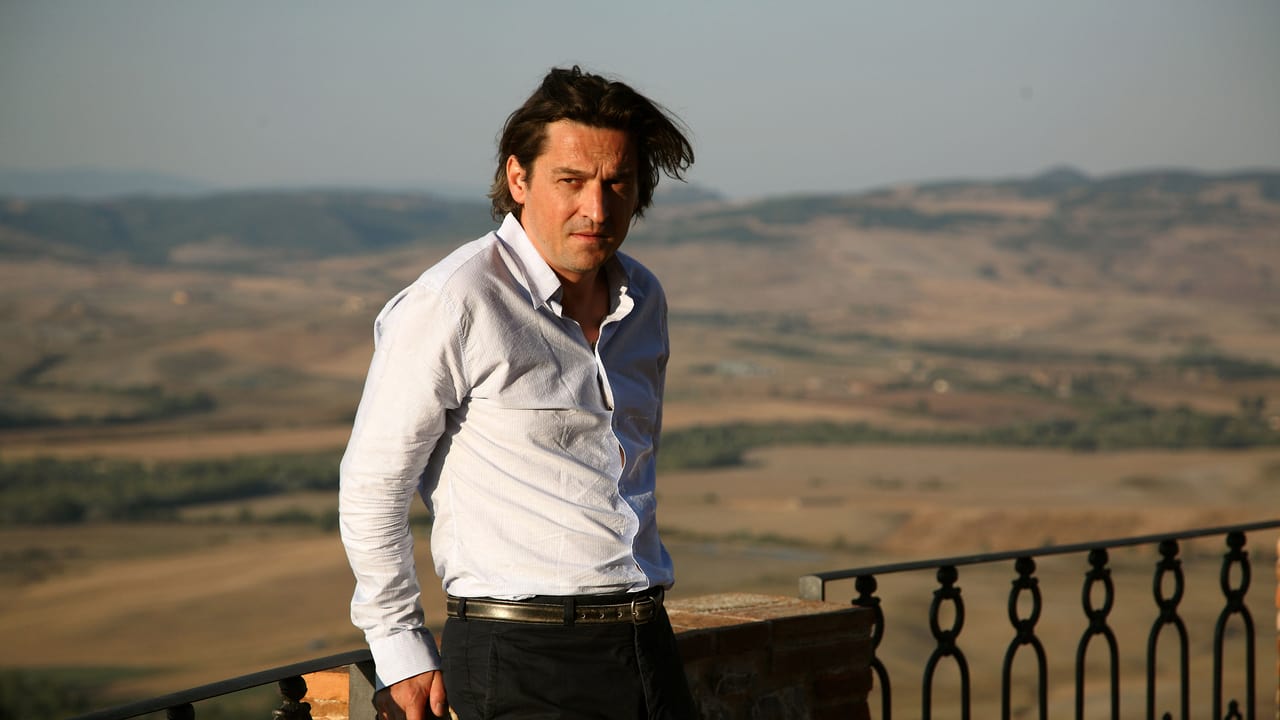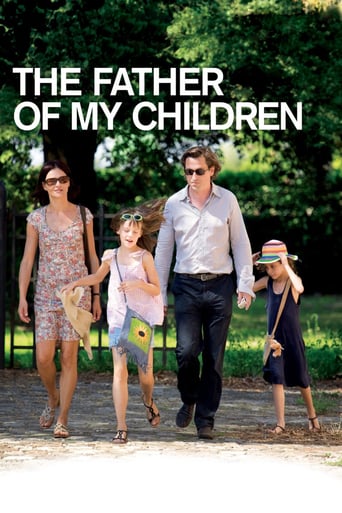

'The Father Of My Children' tells the story of the family of a film producer who comes under financial stress. Plot-wise, the film surprises when the expected ending occurs half-way through; we thus get to also see the aftermath. There's nothing wrong with this per se, although it means we really have two stories in one, and the overall narrative arc is thus slightly broken. But I don't think this is the only reason this film seems strangely devoid of dramatic tension. Even though there are some fairly notable developments, nothing really seems to upset the serenity of its affluent characters. At one point, there's a power cut and the lights go off; after a few minutes, they come back on again, and in some ways, that's how the whole film feels: stuff happens, but the consequences always seem not to actually matter that much. I normally like understated films; but this one, although nicely put together, feels underplayed, and therefore, just a little uninteresting.
... View MoreLoosely based on the real life suicide of the late film producer Humbert Balsan, renowned for his backing of Arabian and women cinema, dissects events leading up to the ill-fated death and then presents the personal fallout left in its wake. Appropriately filmed by a woman, director Mia Hansen-Løve stresses the differences by changing the name of the producer to Grégoire Canvel (Louis-Do de Lencquesaing), in part to avoid confusion about the dramatisation, in part out of pure respect.The story places a visible distinction between the before and after, where the key focus is placed on how his wife Sylvia (Chiara Caselli) and three daughters Clemence (Alice de Lencquesaing), Billie (Manelle Driss) and Valentine (Alice Gautier) cope in the aftermath of the suicide caused by financial distress.Fittingly cinephile "Father of my Children" is a slow-paced family drama with a lingering focus on emotions. Life however, unlike in most movies fret with happy endings, just goes on. Attempts to tie up the past are only partially successful, when Sylvia embarks on a mission to finish her husband's legacy by completing unfinished productions only to face harsh realities, that certain things will be forcibly left buried with Grégoire and liquidation is inevitable. A Hollywood closure is unachievable, simply as unrealistic as rescuing a sinking ship. Even family matters are left open-ended, as the daughters struggle to understand how their father could have compulsively done away with himself to ultimately disregard the family that supported him throughout and where a great affection between members is evident. In the end each of them cope on their own, more owed to time passing by, than some profound realisation.Essentially a good movie made in true French style, albeit a low-key affair, which lingers emotionally, but doesn't do much in the way of awakening deeper reaction, despite all-round good performances. The run-length fizzles through gaining some dramatical foothold, but maybe not sufficient given the grave subject matter. Bleak engagement bereft of pull substantially drives down the quality of the experience, as the realism of grieving seems to ask for a more standardised movie language with a distinct culmination.
... View MoreThis film gave me the kind of experience I hope for when watching French movies: A character driven, intimate story, which so involved me that I feel as if I'd been away on a trip to France. The performances were authentic & lean. The scenery, both interior shots of apartments & buildings, as well as exterior shots of street life, made me feel as if I was in Paris. I was engrossed as to how the characters reacted to the heavy subject matter & how the story line progressed. The film has great depth without feeling heavy.A reviewer here on IMDb commented about how they didn't like the scenes which were not driving the story line, but for me, that's what I love about (some) French Cinema: a character walks from point A to point B or a character orders coffee while awaiting an important appointment. These connecting scenes are the stuff of real life & enable the viewer to identify with the character. Everyone experiences those mundane moments & knows what it feels like.Except for the main character Gregoire, I did not judge the reactions of the other characters: I simply observed their reactions to the serious events that befell them.The final scene was darkly humorous: Doris Day sings "Que Sera, Sera" as the characters flee Paris, leaving behind the life they had loved.
... View MoreThis film has been well reviewed, described as a 'roller-coaster' and emotional, so I was prepared for something quite heavy. However some 30 minutes in, nothing much had happened. The film centers around Gregoire a husband, father and workaholic who runs a film production company that is facing massive financial issues. In between continuous phone calls and business meetings, Gregoire spends time with his family, at their apartment or at the house in the country. The family seem very close and content, but away from this Gregoire is in crisis mode.The start of the film plays outs very slowly, but there is a sense that something tragic will happen. Of course it does, but the effect is less than I would expect. Gregoire's death devastates those around him and his wife is left to pick up the pieces. What should be an emotional, er, roller-coaster fails to engage on an emotional level because while we see Gregoire is up against life, there is no indication that life is so bad that suicide is the answer. There is also no shock element to his death, Gregoire burns some papers then walks along and shoots himself and it all seemed unrealistic.The film also struggles as there is an immense array of pointless scenes: the elder daughter sitting in a cafe ordering a coffee, the family walking around a church in Italy. All of these scenes add nothing except to drag out the story which after the death introduces a secret child and a friendship between the elder daughter and a young man who was to work with her fathers company. Neither of these stories are explored in any detail and so add nothing to the film either.It's a shame that for me the film didn't engage. There are some nice performances, especially from the daughters and the scenes of the family are actually quite endearing. What a loss then that a potentially interesting and emotional story set inside the world of film making is nothing but slow and a little boring.More of my reviews at iheartfilms.weebly.com
... View More